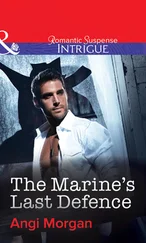‘If you were thinking of coming to Moscow,’ said Ivanov, coyly warming to his theme, ‘I want to say that you might find that this would be welcomed.’ 1
And so it was that Robertson became the first major Western politician to meet the new Russian president. He flew into Moscow in February on a plane provided by the German air force.
Putin seemed to be tickled by the idea, and the sight of a Luftwaffe jet in Moscow helped to break the ice.
‘Why did you come on a German plane?’ he asked.
Robertson quickly realised that the word ‘Luftwaffe’, emblazoned across the side of his plane, evoked a certain sensitivity in Russia in view of the horrors its bombers had inflicted in the Second World War. He explained that NATO itself had no planes, so he had to borrow from the member states.
‘Hmm,’ said Putin, practising his English. ‘Maybe next time, secretary general, you should come in a British plane.’
Robertson had brought a gift for him – a book in English about the tsarist court, which he had found in an antiquarian bookshop. The Russian leader was delighted. It turned out that he was making a serious effort to learn English, now that his profession of ‘mingling with people’ would include a great many foreign leaders.
‘I like to read these English books out loud to practise,’ he told Robertson, and then added, ‘so now my dog is fluent in English.’
There was substance to the charm offensive as well as jokes. Robertson recalls Putin being quite blunt and to the point: ‘He was less confident than he was eventually to be. He was very new to the job. He wasn’t even in the job – he was still acting president.’
‘I want to sort our relationship out,’ said Putin. ‘It’s not constructive at the moment, and I want to resume relations with NATO. Step by step. It can’t happen overnight – and a lot of people disagree with me on this.’ Putin gestured at his defence minister, Marshal Sergeyev, and his foreign minister, Igor Ivanov. ‘But I know what I want, and I want Russia to be part of Europe. That’s where its destiny is. So let us work out how best we can do that.’
The British ambassador told Robertson he was impressed by such a bold, early foreign-policy decision. The relationship had been so fractious that for him to say ‘we are going to resume it’ was a big thing. Robertson sensed that Putin wanted to have ‘an uncluttered relationship’ – to sweep aside the inherited obstacles and talk about the big issues. ‘They wanted to be taken seriously as a major player in the world.’
One other world leader was keen to oblige. Prime Minister Tony Blair saw a chance to make Britain Russia’s ‘partner of choice’ in Europe and decided to ‘get in early’ with a trip to Russia in the first half of March – before Putin was even elected president (the election was due on 26 March). He was more willing at this stage to turn a blind eye to Putin’s ruthless campaign against Chechnya than either Chancellor Gerhard Schröder of Germany or President Jacques Chirac of France. The Foreign Office, too, was wary of the ex-KGB man who was apparently presiding over what many considered to be atrocities in Chechnya. But Blair’s own advisers in Downing Street argued that he was a new type of leader, someone worth investing with early. ‘In my experience,’ said Blair’s chief of staff, Jonathan Powell, ‘KGB officers were the more outward looking members of the old Russian nomenklatura . We decided to reach out to him actually during the election campaign rather than wait till after when there would be a long queue of people wishing to see him. It was risky, but we thought it was the right thing to do, and it did work.’ 2
Powell says Blair scarcely focused on the Chechnya problem until he was on the plane and started reading his briefs. ‘The brief produced by the Foreign Office got him increasingly irritated – because even at that stage Tony was concerned about Islamic terrorism, and he could see the danger of it and thought we were being a bit “double standards” in the way we were dealing with the Russian approach to it. So he decided on the plane to cut Putin some slack on Chechnya when we did the press conference.’
Putin was delighted, and laid on a full tour of his home town, St Petersburg, for the prime minister and his wife, Cherie: the Hermitage art gallery, talks at the tsar’s glittering summer palace, Peterhof, and evening at Prokofiev’s opera War and Peace at the Mariinsky Theatre. The only sour moment came during the talks at Peterhof, when the British ambassador, Sir Roderic Lyne, sat down heavily on a spindly-legged antique chair and shattered it.
‘You’ll be paying compensation for that, I hope,’ quipped Putin – ‘not entirely in jest’, according to one witness.
The visit achieved everything Blair wanted it to. Powell admits that Britain had felt excluded from the cosy relationship Yeltsin had had with the French and Germans (not to mention Bill Clinton), and now Blair had ‘inserted himself’. As soon as the presidential election was out of the way – a mere formality, which Putin won with 53 per cent of the votes – Blair followed up by bringing him to London. There was an uproar in the press as the ‘Butcher of Grozny’ was invited to meet the Queen at Windsor Castle. 3
Blair did appear, for a time, to become Putin’s chief Western contact. In November, when the American presidential election hung in the balance as ballot papers were recounted in the state of Florida, Putin called Blair for advice about whether he should call George W. Bush to congratulate him. Powell recalls: ‘Tony suggested he hold off for the moment until things were clear, and he was very grateful and didn’t make the call. It was interesting. It illustrated a sort of relationship you wouldn’t normally have had with the Russian president, and it made us feel our investment had been worth it.’
Part of the calculation, of course, was that British business would benefit from closer political ties, so during his April visit to London Putin was taken to meet a group of leading industrialists. Lord John Browne, CEO of BP, was impressed: ‘He was a refreshing change.’ The businessmen listened to Putin promising laws that would be stuck to, and a crackdown on corruption – and his cold, impassive demeanour made them feel he meant it. Three years later, watched by Putin and Blair at a ceremony in London, BP and a major Russian oil company, TNK, signed a deal for a 50-50 partnership. At the time, BP’s $6.75 billion outlay represented the biggest ever foreign investment in Russia. Both sides were happy – though there would be a bumpy road ahead, as Putin began to have second thoughts about selling off his nation’s strategic assets to foreigners.
As for America, Putin had already decided to sit out the rest of the Clinton term, and started putting out feelers to George W. Bush’s team. The Russians had long expected a Bush victory. They even sent a team to the Republican Party Convention in Philadelphia at the end of July 2000. One of its members, Mikhail Margelov, a Russian senator and PR expert who had worked in Putin’s election team, said it was part of the new United Russia’s outreach to ‘conservative parties all over the world’, designed to create a right-of-centre ‘brand’ for Putin’s party. They met Condoleezza Rice and other members of the Bush team – not for long, but long enough to get invited back to the inauguration in January. 4
On the day of the inauguration Rice sought out a Russian diplomat to convey a positive message on behalf of the new administration to Putin. Rice was a Russian-speaker and Soviet specialist, who would be central to Bush’s Russia policy over the coming years. Her message held out the prospect of good, friendly relations – but certainly not of a reprise of the Bill ’n’ Boris Show. Rice’s view was that Clinton’s cosy relationship with Yeltsin had become too personalised, and far too soft when it came to calling the Russians to book for their behaviour in Chechnya. In an article that appeared in The Chicago Tribune on 31 December 2000 she delivered a scathing denunciation of the Clinton policy:
Читать дальше
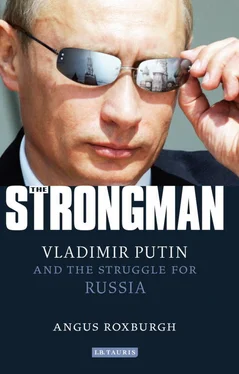
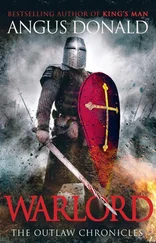
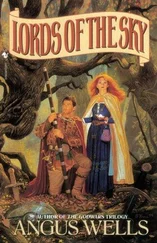


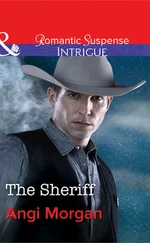
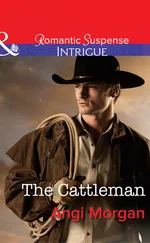

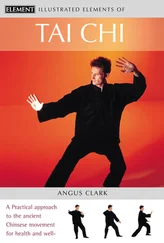
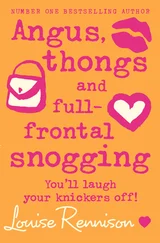
![Brian Thompson - A Monkey Among Crocodiles - The Life, Loves and Lawsuits of Mrs Georgina Weldon – a disastrous Victorian [Text only]](/books/704922/brian-thompson-a-monkey-among-crocodiles-the-life-thumb.webp)
